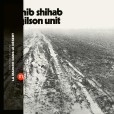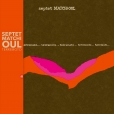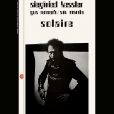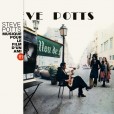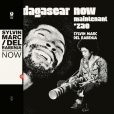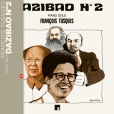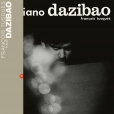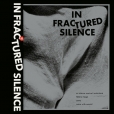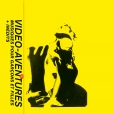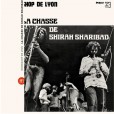Your basket is empty

Manuel Villarroel left Santiago in September 1970 to participate in the Contemporary Music Workshop in Berlin. He rapidly decided to remain in Europe, to pursue his musical career. The following year, the pianist formed a quartet in Paris with saxophonist Jef Sicard (from the Dharma Quintet to be), adding Gérard Coppéré (saxophone), William Treve (trombone), François Méchali (bass), and Jean-Louis Méchali (drums). With the arrival of Sonny Grey, a Jamaican trumpeter who had collaborated ten years earlier with Daniel Humair, they were ready.
On May 8, 1971, the Septet Matchi-Oul was in the studio for Gérard Terronès’ Futura label. recording seven of Villarroel’s compositions.
Siggy was the piano accompanist of Archie Sheep over several decades; he recorded with Dizzy Reece and Hal Singer.
Here is his key LP as leader, in 1971 — with bassist Gus Nemeth and percussionist Stu Martin — edging from post-Trane into free jazz, with an ear for the contemporary electroacoustic music of Xenakis, Berio and co.
This saxophonist came through with the likes of Roy Ayers and Joe Henderson in the sixties, before hooking up with Steve Lacy in Paris in 1973. In this soundtrack composed for a film by his friend Joaquin Lledó — entitled Le Sujet Ou Le Secrétaire Aux Mille Et Un Tiroirs — he was joined by members of the group around Lacy, and diverse co-conspirators including friends from the funk outfit Ice, French accordionist Joss Bassellion, and none other than Jef Gilson at the mixing desk. It’s a dazzling, intensely entertaining blend of modal, cosmic and spiritual jazz, free funk, dirty grooves, heavy jams, bistro boogie and Javanese wah-wah.
These two sharpened their musical skills in the celebrated seja-jazz band from La Réunion, Le Club Rythmique. In 1967 Sylvin Marc put out a terrific funk 45, saturated in James Brown. Later, he would play bass for Nina Simone on her album Fodder On My Wings, whilst Del Rabenja would work with Manu Dibango.
In these 1972 recordings for Jef Gilson’s Palme label, they are joined by their Madagascan compatriots Ange Japhet, Gérard Rakotoarivony and Frank Raholison — comprising the same group of five which lights up Funny Funky Rib Crib by Byard Lancaster and Soul Of Africa by Hal Singer & Jef Gilson.
The first side showcases the valiha harp-playing of Del Rabenja: three excursions in tribute to the great Rakotozafy, hypnotic and full of spirituality. The second side presents four compositions by Marc — free, grooving and cosmic.
A second set of piano improvisations, one year after the first, now more extended, percussive, insistent, and tumultuous; explicitly enraged by the recent murder of George Jackson by a San Quentin guard, and the massacre at Attica Prison.
Reaching solo-piano explorations in blues, jazz and classical music by the Free Jazz pioneer, in 1970; inspired by the revolutionary spirit of the times, and — opening with a dedication to Don Cherry — the New Thing.
With the arrival of clarinettist-saxophonist Louis Sclavis in 1973 (and the departure of trumpeter Jean Mereu in 1975), the Workshop De Lyon was born of the Free Jazz Workshop.
A warmly accessible, beautifully performed, joyous mixture of wailing improv and propulsive, rootical preparations, this second album derives its upful, digressive theatricality from the Arts Ensemble Of Chicago, and its urgent sublimification of vernacular rhythms and melodies from Albert Ayler. Wild and free, but grounded in stuff like Bechet, Monk and George Russell.
Terrific.
